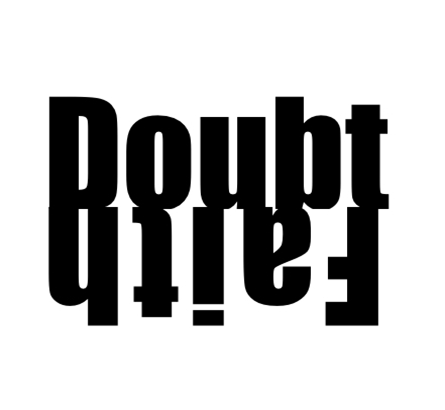There is no way to get around how modernity has affected the
psychological experience of faith, where faith is usually thought to
be located in the mind. In a pluralistic and hyper-connected
world religious belief is no longer a cultural given or an inherited
legacy from past generations.
Rather, in modernity faith is at the front of our minds
experienced as a choice among a wide swath of competing options. This
can be a choice between the denominations within Christianity, between faith
and the varieties of unfaith (e.g., atheism, agnosticism). And this is a
choice—simply because it is a choice—that has to be routinely revisited. This
can make faith feel fragile, tentative and provisional.
Consequently, doubt is a consistent aspect of our religious experience. We doubt
because we chose faith and because we chose faith we’ll never escape doubt. And yet, many of us don’t cope with this situation very well. Doubt is
associated with anxiety at the deepest levels. Doubt makes us question the
foundational aspects of our lives, the deep structures that make life coherent
and meaningful.
And yet, many people struggle in trying to carry this burden. They have opened
their minds to others but the associated doubts—the question marks they have
placed behind everything—create existential crises and panics that can lead to
cognitive rumination, depression or other psychological problems. And if not
these psychological problems the doubt produces a host of spiritual
problems—cynicism, listlessness and spiritual dryness.
We go into the wilderness and into exile to confront our doubt, our
listlessness. It seems like living with doubt makes you walk a tightrope
between dogmatism or depression. Perhaps the wilderness can show us another
way: I think doubt can be replaced with an eccentric experience of
faith which can be rooted in the experience of gratitude and gift.
Gratitude and gift are eccentric experiences. Something is “given” to
us. We experience palpably the debt-to-debtor relationship with God in our very
being. Consequently, our sense of ownership, belonging and stewardship is
attenuated. Our posture toward life becomes open-handed and receptive rather
than tight-fisted and possessive. This allows us to face the uncertainties
and fortunes of life with an experience of gratitude rather than anxiety.
Gratitude is a balm for anxiety and it softens the heart toward those we
experience as other. If life is a gift there is nothing to protect or
defend. We can forsake our petty desires to compete or protect, to
achieve power or control.
How does Lent challenge your own sense of identity and eccentric experience of
faith? How do you respond to a sense of indebtedness to God while
cherishing the freedom of choice in denying yourself, picking up your cross, and following? How do your doubts inform your choice,
your discipline, your goals for discipleship?




No comments:
Post a Comment